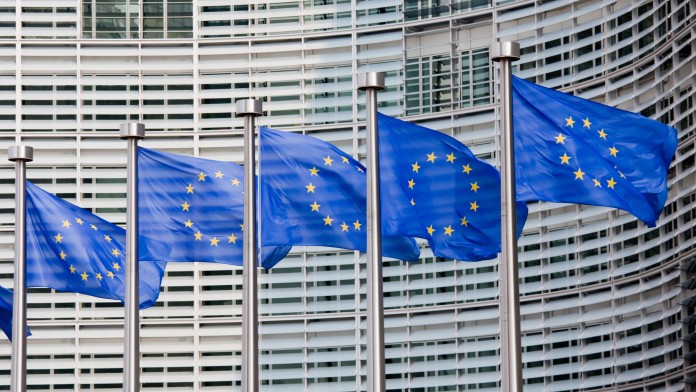Tip: Activate javascript to be able to use all functions of our website
Press Release from 2017-03-14 / Group, KfW Research
The Treaties of Rome, 60 years on: EU countries have world’s highest levels of prosperity and economic performance
- The EU is the politically and economically most successful community of national states in the history of Europe
- It has secured the peace in Europe, delivering a ‘peace dividend’ worth billions
- Very few states in the world have evolved as successfully as the countries of the EU
- The benefits of European unity far outweigh the costs: the EU provides personal freedom and many everyday advantages for its residents, such as a wide range of available products and strong consumer rights
The signing of the Treaties of Rome on 25 March 1957 laid the foundation for today’s European Union. Sixty years on, it is not just struggling to come to terms with the consequences of the economic crisis and grappling with refugee migration, but also with critical voices in the population. In the past years, people have become increasingly oblivious to the high value of European unity and the benefits of the EU for its citizens and economies. And yet, as a current analysis of KfW Research shows, the EU is the politically and economically most successful community of national states in history.
Securing the peace between the member states is regarded as the EU’s greatest achievement. In order to provide an approximation of the resulting ‘peace dividend’, KfW Research has estimated how much higher the EU states’ defence spending might be if they continued to regard each other as political and military rivals. In a comparison between the countries of the EU and countries that feel threatened militarily or are involved in wars, such as Russia or Israel, all EU states combined save up to EUR 516 billion in military spending each year, and Germany alone EUR 116 billion.
As the world’s second-largest domestic market, the EU has gained the same economic significance as the USA. In 2015 it generated 17% of global gross domestic product and 33% of global trade. The six founding countries’ real per capita GDP has more than tripled since 1957. The member states that joined later are experiencing a dynamic catching-up process. The EU occupies top ranks worldwide in income equality, education and life expectancy.
The European internal market provides a reliable sales environment for its member states. The elimination of tariffs and other barriers has enabled the ratio of goods exports to GDP to grow much more strongly than in the USA or Japan, for example. On average, The EU countries ship two thirds of their exports to a partner country of the Union. The close trade relations between them can protect them when protectionism emerges in other regions of the world. European consumers reap great benefits from free trade. Intense competition leads to a greater diversity of products, high standards and falling prices.
The EU also contributes to the stabilisation and development of its member states. Without economic cooperation and the principle of solidarity in the EU, the financial crisis would have had much more severe consequences. Structurally weak regions receive significant financial support from the EU budget. Not least, the Union guarantees its residents the highest possible freedoms, such as the free movement of workers. It also strengthens the rights of consumers and performs tasks that individual states cannot solve satisfactorily, for example in climate change mitigation or the prevention of tax evasion.
Dr Jörg Zeuner, Chief Economist of KfW Group: ‘Family, friends, sport and holidays – all of that costs money and takes time. And yet it is worth it. The same is true of European integration. Its benefits far outweigh the costs, which is why I don’t want to miss European integration. In order for Europe’s success story to be able to continue, the EU needs to be made fit for the future. It needs more investment and innovation, better education and participation for its inhabitants in business and social life, solid and flexible finances on all governance levels, including Brussels, and financial, social and environmental policy reforms. The EU can reach these goals only as a community. It will therefore need to communicate its benefits more effectively to its inhabitants and more resolutely demand constructive collaboration from its member states. The options for this are on the table.’


